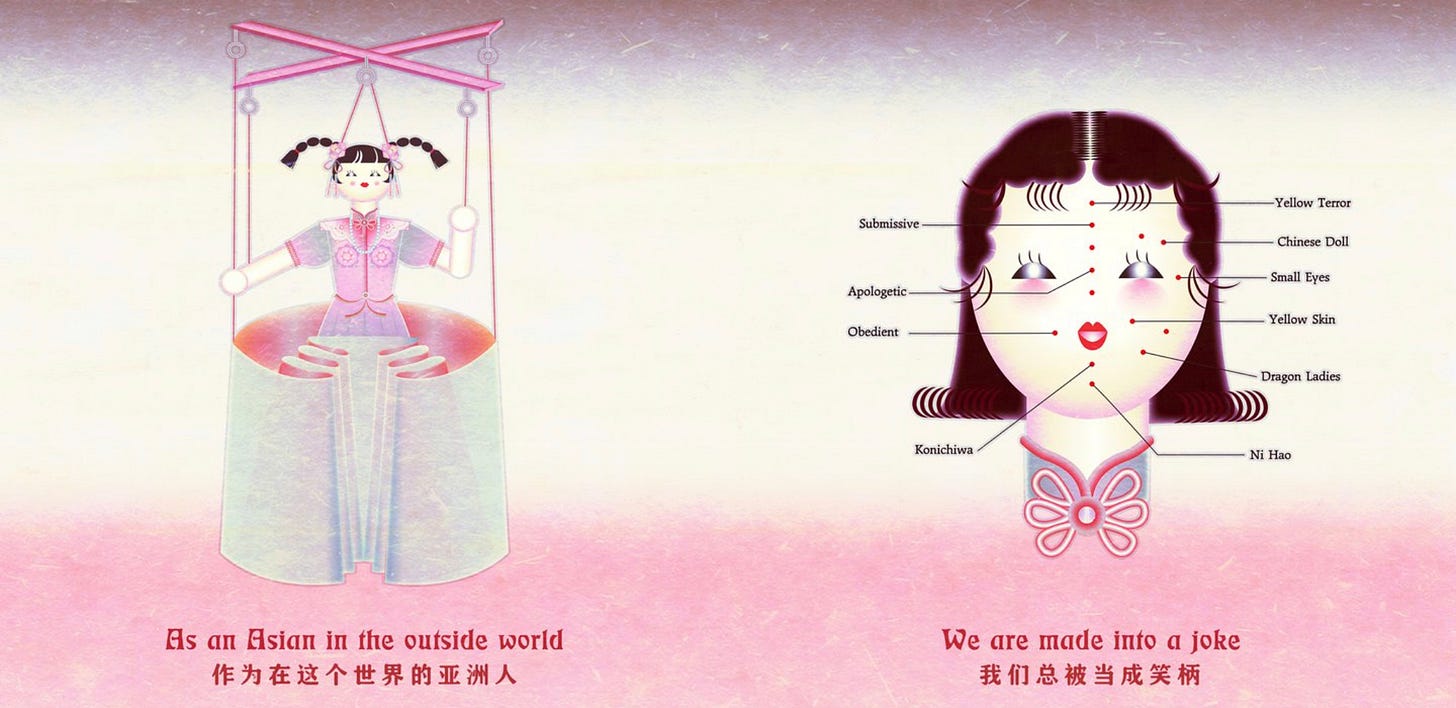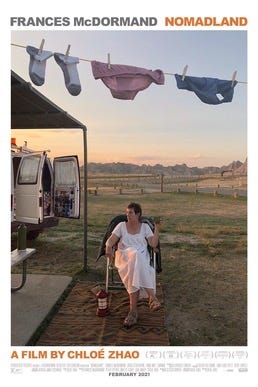Welcome to Just Two Things, which I try to publish daily, five days a week. Some links may also appear on my blog from time to time. Links to the main articles are in cross-heads as well as the story.
#1: Resisting racism
(Image Vanilla Chi, words Jyni Ong)
The Asian-American artist Vanilla Chi has produced a downloadable poster to increase awareness of the increasing levels of hate crime against Asians in the US. This has risen sharply since the pandemic—even been whipped up. Jyni Ong, who worked with the artist on the poster and associated cartoon, has a piece in It’s Nice That.
A couple of weeks ago, I listened to an insightful podcast with [writer Ocean] Vuong. There was a particular moment which surprised me, when he describes language as “an act of kindness”, a way of showing love to one another. I was taken aback because I had forgotten this beautiful purpose. I had forgotten because my mind was clouded by language co-opted for hate. The phrase “I will kill all Asians” will linger for some time still. A death sentence the Atlanta shooter uttered on 16 March 2021 before killing eight people, six of whom were East and South East Asian women.
Ong’s short article touches on the role of language in the immigrant experience; form parents who can sometimes barely speak the language of the new country making vast sacrifices so that their children will not be disadvantaged in the same way:
This language became my mother tongue, but unlike those before me I can use it to fight back. And as the clinical psychologist Jenny Wang suggests: “Let’s channel the rage of our elders and wield language as an agent of change. Our voices matter even more now. Our voices must sustain this movement in order for the tide to turn.”
The poster can be freely downloaded here (opens Dropbox).
I don’t normally pick up on mainstream newspaper pieces here, but with the success at this year’s Oscars of Nomadland it’s worth noting a terrific article by the film writer Xan Brooks looking at the circumstances, and the mythologies, of the travelling workers depicted in the film. The material conditions, if you like.
In passing, it’s also worth noting that after the success of Parasite last year, this is the second year in succession that the Best Picture Oscar has been won by a film about marginal precarious workers. Who knows if that means anything.
Nomadland was made on a tiny budget by director Chloé Zhao, from the book by Jessica Bruder. Although Frances Dormand plays a (fictionalised) lead, many of the parts in the film are played by amateur actors who live on the road:
the film bounces Frances McDormand’s hard-bitten loner through a modern American badland in which the saloon and the sheriff’s office have been replaced by the RV park and the Amazon warehouse. I would file the film as an anti-western, a wholesale repudiation of manifest destiny, the pursuit of happiness, all the Hollywood snake oil we have long been fed.
And the reason for this is that, yes, being on the road is a form of freedom, but, as the song has it, it may also just be another word for nothing left to lose. Because there are losses, often financial losses, sitting behind most of the stories in Nomadland.
In researching Nomadland, Bruder trailed the migrants between the beet fields of North Dakota and the camp grounds of California in her own camper van. Most, she says, were keen to frame the lifestyle in the soaring rhetoric of the old west. They cast themselves as outlaws, cowboys, pioneers. They spoke of freedom and opportunity, individualism and self-reliance. Only later did she start hearing about all the rest: the lost jobs, ruinous divorces and foreclosed homes that put them on the road to begin with. They printed the legend, then they told her the facts.
Many of the characters in Bruder’s book ended up on the road because of the 2007 financial crisis. She expects more to join them as a result of the pandemic. How long can you do it for? As long as your health holds up and you are strong enough for the work.
Their work is seasonal, but regular. They materialise and disperse to the same loose annual schedule. Experience has taught these people to mistrust the clearcut finality of any separation or resolution. In the film, (Bob) Wells explains that a real nomad never says goodbye. Instead they will always say: “I’ll see you down the road.” They figure that there are good odds they will bump into each other at the next packing gig or the next beet harvest, next month or next year, somewhere beyond the next sunset.
Steinbeck pops up in the article in a couple of places, but this reminded me more of the Woody Guthrie song ‘Pastures of Plenty’:
I worked in your orchards of peaches and prunes
I slept on the ground in the light of the moon
On the edge of the city you'll see us and then
We come with the dust and we go with the wind
California, Arizona, I harvest your crops
Well its North up to Oregon to gather your hops
Dig the beets from your ground, cut the grapes from your vine
To set on your table your light sparkling wine.
Now with added Amazon, of course. I recommend Lila Downs’ version of the song:
j2t#085
If you are enjoying Just Two Things, please do send it on to a friend or colleague.




